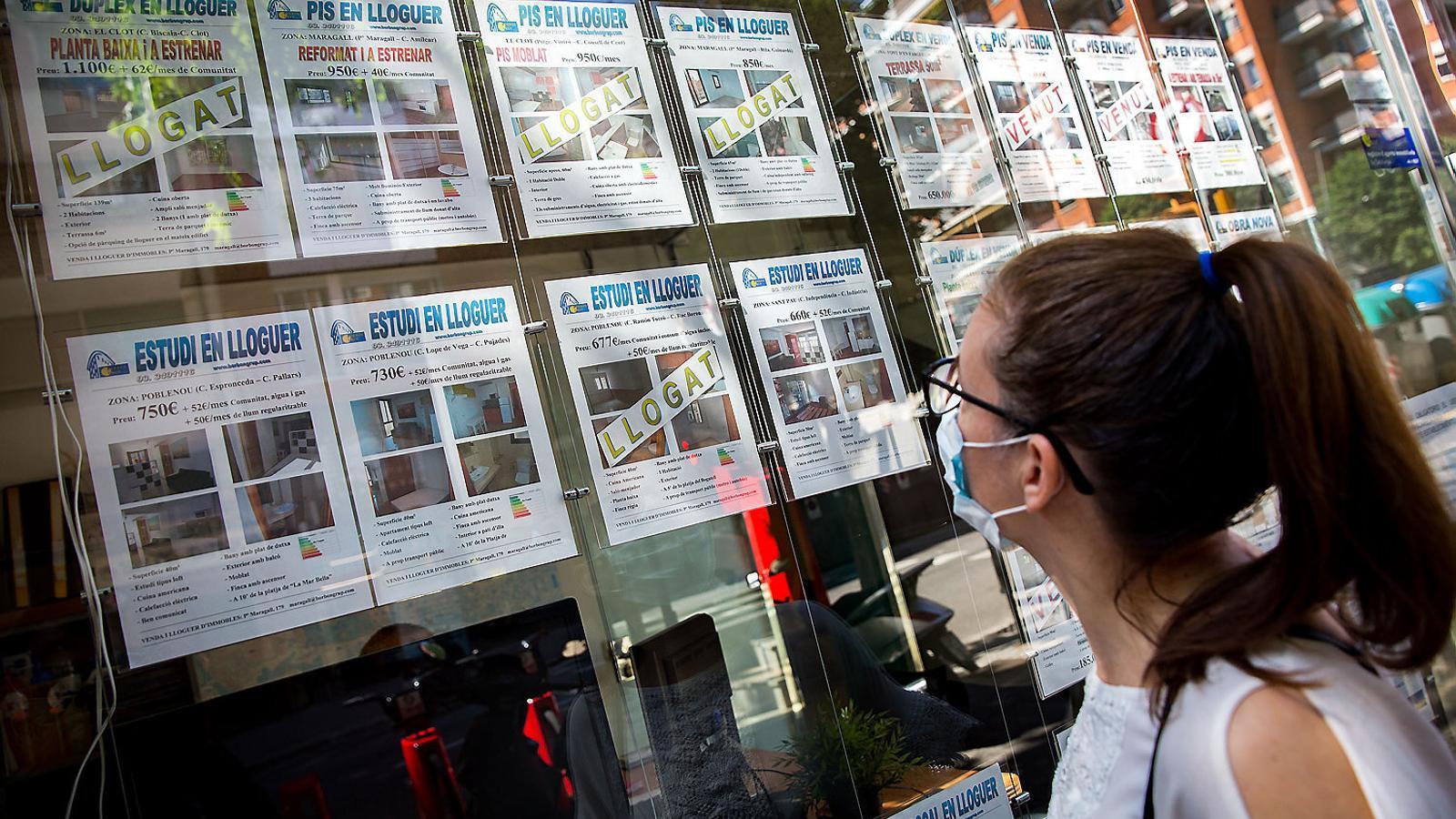Limiting housing speculation: a controversial measure
Experts disagree on the legal viability and market effectiveness of the proposal.

BarcelonaThe president of the Generalitat, Salvador Illa, has announced that the Government will study prohibit or limit speculative housing purchasesA measure on which experts disagree, both on its legal viability and on the possible positive effects on a tense market with a lack of supply, high demand, and ever-rising prices. The government's proposal seeks legal support in a report commissioned by the Barcelona Metropolitan Strategic Plan, prepared by jurist Pablo Feu, an expert in administrative and urban planning law and professor at the University of Barcelona. This report concludes that the measure, being constitutional, should be subject to application in areas declared to have a tense residential market, on an exceptional, territorial, and temporary basis.
This view is supported by Jaime Palomera, researcher and director of Housing at the Barcelona Institute for Urban Research (IDRA), who maintains that this measure could be implemented in accordance with state land law and the Catalan urban planning law, laws that ensure social and territorial cohesion. In his opinion, this doesn't currently occur when people are forced out of their cities or neighborhoods and must move to other places. However, he indicates that it could be applied "temporarily and with justification." As an example of a similar measure, Palomera cites the Netherlands, where, in areas of high tension, home ownership is limited to those who certify that they will live there as their primary residence for at least four years.
For the manager of the Barcelona Chamber of Urban Property, Òscar Gorgues, the first problem arises when we try to define what a speculative sale is. "It's an idea that can lead to a lot of legal uncertainty," says Gorgues. For this expert, a measure of this type would also affect the market, because "it would not increase the housing supply," which is the main problem at the moment, and, furthermore, "it would limit demand."
The argument is clear. If a measure of this type is implemented, it would not create greater supply and, furthermore, demand would slow down in the highest-priced developments, causing developers to stop building new homes. This would occur especially in areas with a large number of second homes and, as a consequence, "the market would come to a standstill." For Òscar Gorgues, implementing this type of measure would be very complicated if it is to be done properly without disrupting the market, because the case law varies from place to place.
Fiscal measures
However, for Palomera, there are measures that can be adopted. This researcher, for example, indicates that it would be difficult to put a cap on the number of homes a person can acquire, but fiscal measures could be taken to prevent many homes from becoming concentrated in a few hands. He gives the example of income. One cannot limit a person's earnings from their work, but the system taxes those who earn more heavily. "What happens with income," he says, "doesn't happen with assets, with wealth."
Another measure proposed by Palomera would also be fiscal in nature. He points out that in Catalonia, the Property Transfer Tax (ITP) rate has already been raised to 20% for the fifth property. This, he says, aims to limit the accumulation of many properties in the hands of a single owner. Palomera points out that this measure "is the opposite of what many regions do." Another fiscal measure that could be taken, says Palomera, would be through the real estate tax (IBI), as with rents: "The more properties there are, the higher the IBI payable would be." That is, modulating this tax with brackets based on the number of homes the owner owns.
